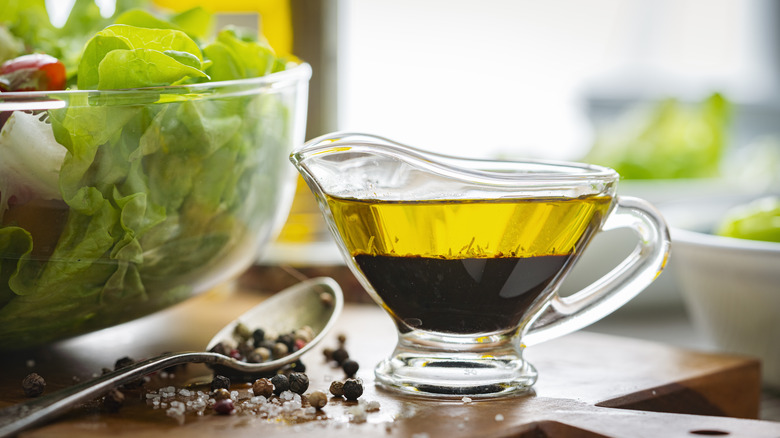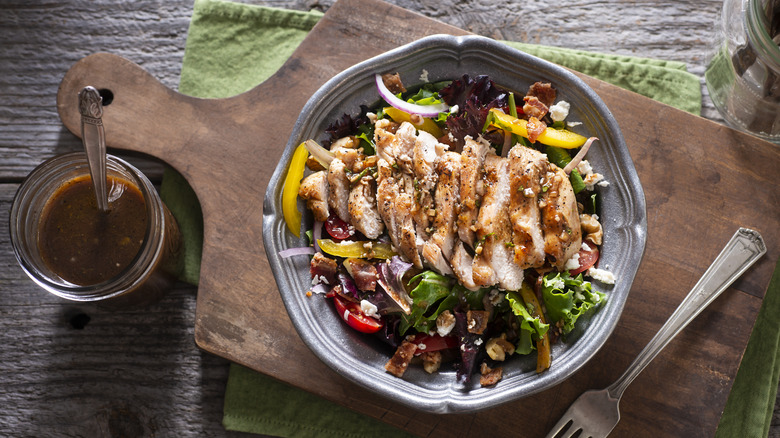For Perfect Consistency In Salad Dressing, Balance The Main Components
Simultaneously fresh and hearty, salads are an ideal go-to meal anytime of the year. One can easily pull together greens with add-ins like chicken breast, tomatoes, or cucumbers. Top it off with dried berries, cheese, or nuts, and you've got a foolproof meal. Salad dressings can also be quickly mixed together, but without balancing the main components, it won't be as easy to pull it off well.
No salad dressing is created equal; a creamy ranch is wildly different from a lemon vinaigrette. Yet, despite the disparities, they're all made from the same main fundamentals. Every good salad dressing consists of a balance of oils, acids, and emulsifiers. Depending on the desired outcome, the amount of each ingredient won't be the same across the board. Still, those three will be present in every successful salad dressing, each serving a different purpose.
In a green goddess dressing, white wine vinegar and lemon juice, olive oil, and egg yolks work as the acids, oil, and emulsifier, respectively. While the olive oil coats the salad, the vinegar and lemon juice work to thin out the oil while adding a delightful acidic tang. Since oil and water-based liquids like vinegar and lemon juice don't mix, the egg yolk emulsifies the mixture, binding everything together. With the dressing balanced texture-wise, you can work on adding spices and herbs for flavor.
How to make a balanced dressing based on your salad
Pasta salads are full and hearty, requiring a dressing that's in the same vein. Rather than going with a thinned-out vinaigrette, something like a chicken pasta salad or veggie antipasti Italian pasta salad needs a dressing that's slightly creamy. Thick enough to cling to the pasta without overwhelming the ingredients, a good balance of red wine vinegar and olive oil yields a delicious dressing. But it's the dollop of Greek yogurt for creaminess that allows it to become the perfect consistency.
Meanwhile, chopped salads like this classic cobb require thicker dressings. A healthy dose of mayo or Dijon mustard will coat crunchy pieces of romaine or iceberg lettuce much better than a more delicate dressing. Mix equal parts vinegar or lemon juice and olive oil with a larger amount of emulsifier for a smooth, creamy finish.
If there's any salad that does need a vinaigrette, it would be a lighter, leafier green salad. Something spinach or arugula-based like a beet, apple, and cranberry salad doesn't need to be weighed down by a heavy dressing. Stick to a fruity, lightweight vinaigrette, with more apple cider vinegar than olive oil and a touch of honey to act as the binder.

